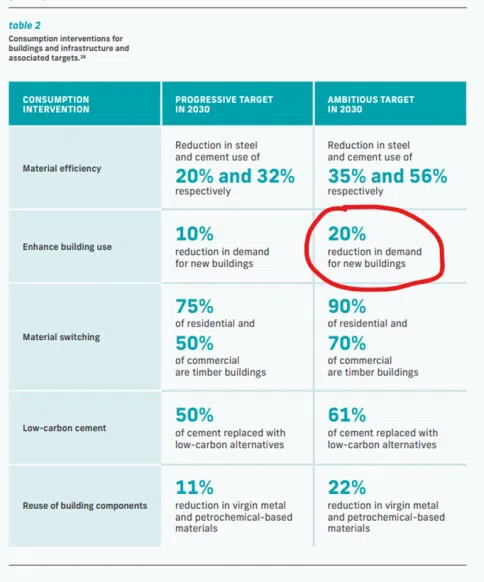“Humans Will All Wear a Uniform” (Tomorrow Belongs To ?) – Confounded Interest – Anthony B. Sanders
Ah, the elitists at the World Economic Forum are at it again, telling Americans what they can eat and what they can wear. The official song of Klaus Schwab and the World Economic Forum is “Tomorrow Belongs To Me!”
The World Economic Forum has declared that by 2030 fashion will become completely obsolete and all humans will be vegan, whether they like it or not. Despite the fact that NASA has admitted that global warming is due to earth’s proximity to the sun in its elipse, not due to carbon emissions. But hell, there is no money in that. But there are trillions of dollars (and Euros) available to fight the mythical war against global warming!
A newly resurfaced report written in 2019 states that humans will only be permitted to buy three items of clothing per year and will be prohibited from buying or consuming meat.
Published in 2019, ‘The Future of Urban Consumption in a 1.5°C World’ report funded by the WEF, sets out extreme targets for governments around the globe to reduce greenhouse gas emissions, as consistent with the 2015 Paris Agreement ambitions.
The report outlines six areas where world governments can take “rapid action to address consumption-based emissions”: food, construction, clothing, vehicles, aviation, and electronics:
“The report demonstrates that mayors have an even bigger role and opportunity to help avert climate emergency than previously thought … While the analysis addresses big global questions, its purpose is to inspire practical action … average consumption-based emissions in C40 cities must halve within the next 10 years. In our wealthiest and highest consuming cities that means a reduction of two thirds or more by 2030.” – Mark Watts, Executive Director of C40
“It is now clear that action to reduce consumption will be necessary as part of the global effort to mitigate climate change … The actions set out in the report are challenging and they will be confronting for many, but we think they are necessary … City Mayors can set a vision and convene actors to bring about the changes we describe … The work reported here forces a focus on what a sustainable urban future might look like and helps us to consider what policies, regulations, incentives and behavioural changes will be necessary to transition to a zero-carbon world.”
– Gregory Hodkinson, Former Chairman of ArupThe Future of Urban Consumption in a 1.5°C World, 2019
C40 is a global network of mayors representing one-quarter of the global economy. It includes almost 100 cities plus 1,143 cities and local governments that have joined C40’s ‘Cities Race to Zero’. The cities that sign up for the ‘Cities Race to Zero’ commit, among others, to keeping global heating below the 1.5°C goal of the Paris Agreement.
Without reading the numerous reports and recommendations thrown at the ‘Cities Race to Zero’ signatories, it’s not possible to establish if the actions set out in The Future of Urban Consumption in a 1.5°C World report are specifically included in the action plan. Why does it matter? Because if they are, it is not only the 100 or so C40 Cities but more than 1,000 cities that are committing to the report’s reductions in consumer-based emissions. Additionally, we can assume Arup’s network is committing the same.
Arup works as a global network of “experts” and boasts that it “shapes cities in a thousand ways.” It has more than 17,000 members and offices in 46 of the 97 cities that make up C40’s global network. C40 and Arup have worked together since 2009 and have collaborated on dystopian publications such as Deadline 2020, Green and Thriving Neighbourhoods and a guide for creating net-zero neighbourhoods. But these collaborations have not come about without money changing hands.
The first C40/Arup report titled ‘Powering Climate Action: Cities as Global Changemakers’ was published in 2015. That same year Arup committed to investing $1 million over three years into a research partnership with C40.
In 2019, the year the C40/Arup consumer-based emissions report The Future of Urban Consumption in a 1.5°C World was published, Arup trebled its advisory support to C40 to $3 million over 3 three years.
In 2023, Arup continued its investment in C40 with up to US$300,000 a year to help C40 drive resilience and decarbonisation in cities around the world. Unsurprisingly, in March 2023, C40 Cities re-highlighted the 2019 C40/Arup consumer-based emissions report in an article titled ‘A spotlight on consumption-based emissions’. “Since our report was published, cities around the world have begun to map consumption-based emissions and explore ways to reduce them,” C40 said.
So, what does the 2019 report that Arup has so heavily invested in say?
Below we have picked out a few highlights. You can download and read the full report HERE. Because it provides damning evidence against its collaborators, we have also attached a copy below should it disappear from public view at any time in the future.
Starting on page 66, the report summarises what they hope to impose on us. Below are images of their “ambitions” which require no further comment, except to say that all these plans are being made and agreed upon outside the democratic process and in a classic dictatorial manner under false pretences.

C40 and Arup’s activities need to be halted immediately and their operations shut down permanently. Additionally, any person who has actively contributed to/participated in devising, considering or implementing these plans should be questioned, investigated and brought to account.
The song “Mein Herr” seems to be about Klaus Schwab.
Of course, if former President Obama actually believed that the oceans are rising, he likely wouldn’t have bought an ocean-front mansion on Martha’s Vineyard.
I wonder if Biden is taking a bribe from Klaus Schwab for say $10 million??

[ad_2]
Source link


